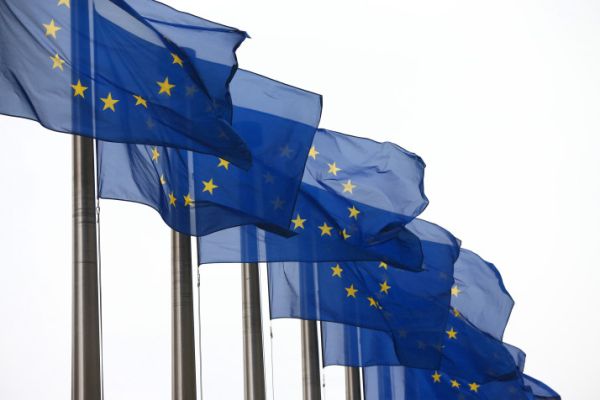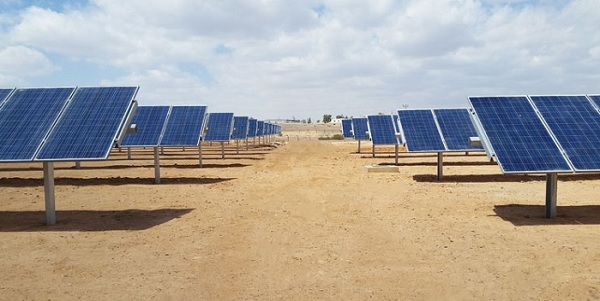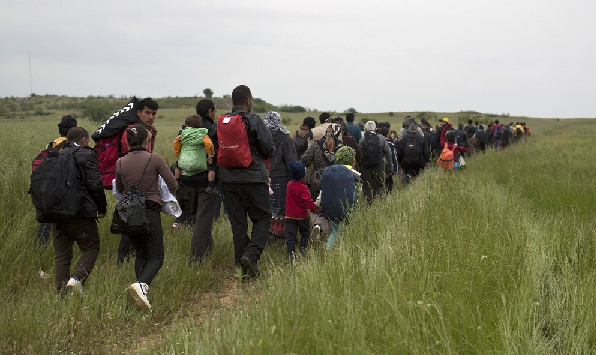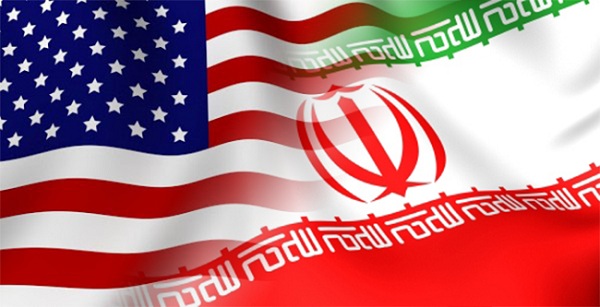
by Editor | May 25, 2021 | Muslim World
 Kabul : The European Union on Monday approved a €100 million package to support Afghanistan in carrying out reforms to improve its development policies, maintain macroeconomic stability, advance sound public financial management and strengthen state budget transparency.
Kabul : The European Union on Monday approved a €100 million package to support Afghanistan in carrying out reforms to improve its development policies, maintain macroeconomic stability, advance sound public financial management and strengthen state budget transparency.
This came in a joint statement by the Office of the EU Special Representative for Afghanistan and the Afghan Finance Ministry.
The EU’s decision follows a positive assessment of progress in these reform areas over the last 12 months against the background of a challenging security situation. It is part of a State Building Contract (SBC) signed with the government of Afghanistan during the Brussels Conference on Afghanistan on 4 October 2016.
This EU financial contribution for Afghanistan is meant to support the Afghan government in creating growth and jobs and to ensure service delivery during a time of uncertainty that includes significant risks to the economy.
EU Special Representative for Afghanistan Franz-Michael Mellbin said: “The allocation approved today is a very tangible demonstration of the EU’s long-standing commitment to Afghanistan and its people.” “Following an overall positive review of progress on key reform commitments, the EU’s State Building Contract makes a direct contribution to the National Budget and provides the government of Afghanistan with substantial financial resources and flexibility to allocate these where they are most needed. The purpose is to improve services to the population, boost economic growth and reduce poverty, at a time when Afghanistan continues to face major security, economic and political challenges,” he added.
For his part, Afghan Finance Minister Eklil Hakimi said: “The approval of this allocation means that Afghanistan has been making significant progress in crucial areas such as public policy, macroeconomic, financial management and budget transparency and oversight.”
“We welcome conditionality-based mechanism, such as the State-Building Contract, they give the government of Afghanistan flexibility and fiscal space to respond quickly to our countries evolving development priorities and reaffirm our mutual commitments to see a prosperous, stable and self-reliant Afghanistan. I thank the EU, its member states, and the people of Europe for their generous support to Afghanistan,” he said.
The SBC supports the Afghan government to implement the reform agenda presented at the Brussels Conference on Afghanistan held in October 2016, as set out in the Afghanistan National Peace and Development Framework and the associated National Priority Programs, to promote effective governance, women’s economic empowerment and basic service delivery (Citizens’ Charter).
—AB/IINA

by Editor | May 25, 2021 | Muslim World
 Amman (IINA) – Jordanian Minister of Energy and Mineral Resources Ibrahim Saif said Jordan will soon sign with the European Union a grant agreement for the second Renewable Energy and Energy Efficiency Program with an additional budget of 90 million euros, Petra reported.
Amman (IINA) – Jordanian Minister of Energy and Mineral Resources Ibrahim Saif said Jordan will soon sign with the European Union a grant agreement for the second Renewable Energy and Energy Efficiency Program with an additional budget of 90 million euros, Petra reported.
The minister was speaking during a ceremony on Thursday on concluding the Technical Assistance to the Renewable Energy and Energy Efficiency Program, which was funded by the EU. He underlined the important role of the project in assisting the national strategic plan of the energy sector.
The minister also commended the EU role in supporting Jordan to strengthen its local energy resources, especially renewable energy that reduces the cost of the energy bill.
For his part, EU Ambassador to Jordan Andrea Matteo Fontana highlighted the importance of the project which provides substantial support for the development of investments in the renewable energy sector.

by Editor | May 25, 2021 | Muslim World, Opinions
 Brussels, (IINA) – Refugees who arrived in Europe last year could repay spending on them almost twice over within just five years, the Guardian reported Wednesday, citing one of the first in-depth investigations into the impact incomers have on host communities.
Brussels, (IINA) – Refugees who arrived in Europe last year could repay spending on them almost twice over within just five years, the Guardian reported Wednesday, citing one of the first in-depth investigations into the impact incomers have on host communities.
Refugees will create more jobs, increase demand for services and products, and fill gaps in European workforces – while their wages will help fund dwindling pensions pots and public finances, said Philippe Legrain, a former economic adviser to the president of the European Commission.
Simultaneously refugees are unlikely to decrease wages or raise unemployment for native workers, Legrain said, citing past studies by labor economists.
Most significantly, Legrain calculates that while the absorption of so many refugees will increase public debt by almost €69billion between 2015 and 2020, during the same period refugees will help GDP grow by €126.6bn.
“Investing one euro in welcoming refugees can yield nearly two euros in economic benefits within five years”, concludes Refugees Work: A Humanitarian Investment That Yields Economic Dividends, a report released on Wednesday by the Tent Foundation, a non-government organization that aims to help displaced people.
Legrain added that he hope the report will dispel the myth that refugees will cause economic problems for western society.
“The main misconception is that refugees are a burden – and that’s a misconception shared even by people who are in favor of letting them in, who think they’re costly but it’s still the right thing to do”, said Legrain in an interview.
“But that’s incorrect. While of course the primary motivation to let in refugees is that they’re fleeing death, once they arrive they can contribute to the economy”.
While their absorption puts a short-term strain on public finances, Legrain said, it also increases short-term economic demand, which acts as a welcome fiscal stimulus in countries where demand would otherwise be weak. In the longer term, refugees will increasingly contribute to tax revenues, and also create jobs.
“To put it simply, there is not a fixed number of jobs to go around”, reads the report. “Refugees who take jobs also create them. When they spend their wages, they boost demand for the people who produce the goods and services they consume. And they also create jobs for people in complementary lines of work. For instance, refugees who become construction workers create jobs for locals who are supervisors or sell building supplies”.
Legrain also highlighted how refugees could solve an impending demographic challenge in Europe. “By 2030 the working-age population is projected to shrink by a sixth (8.7 million people) while the old-age population will grow by more than a quarter (4.7 million people)”, wrote Legrain. He suggested that an influx of younger refugees could help care and pay for the increasing population of pensioners.
However, Legrain warned that refugees’ positive economic impact would be hindered if Europe does not take immediate steps to accelerate refugees’ entry into the workforce.
He stressed that asylum seekers should be allowed to work while their applications are being processed in order to lessen their burden on the state. He also noted that they should be given language lessons as a matter of urgency, and are housed in areas where there are more jobs, rather than simply in places where the housing is cheapest.
Authorities should also speed up certification of qualifications obtained in countries of origin, Legrain said, citing how a delay in certifying Syrian pharmacists in Sweden is exacerbating a labor shortage in that sector of the Swedish economy.
Quick access to the job market “reduces their reliance on public funds, ensures they are contributing their labor and taxes to the host economy, helps them adapt faster to life in their new society, and lowers the chances that they will end up marginalized from the labor market and society on a longer-term basis”, the report concludes.

by Editor | May 25, 2021 | News, World
 By Arun Kumar
By Arun Kumar
Washington:(IANS) The US and European Union lifted international economic sanctions against Iran implementing a historic deal with Tehran after the UN nuclear watchdog agency confirmed it has begun dismantling its nuclear programme as promised.
The implementation of the deal would also release about $100 billion of Iran’s assets and make it easier for India and other countries to do business with Tehran.
India, which had substantially reduced its oil imports from Iran under US pressure, can now freely import oil from Tehran, but would now have to pay for it in dollars.
Due to the sanctions, India has been paying Iran in Indian rupees, with the money kept in an Indian account. India has to now release an estimated $6 billion in pending oil payments to Iran.
President Barack Obama signed an executive order lifting some of the US economic sanctions on Iran, the White House announced.
Secretary of State John Kerry issued a statement confirming the International Atomic Energy Agency has verified that Iran “has fully implemented its required commitments”.
“Iran has undertaken significant steps that many, and I do mean many, people doubted would ever come to pass.
“And that should be recognized, even though the full measure of this achievement can only be realized by assuring continued full compliance in the coming years,” Kerry said.
With the implementation of deal reached last July, the US, “our friends and allies in the Middle East, and the entire world are safer because the threat of the nuclear weapon has been reduced”, he said.
In exchange for lifting sanctions, Iran must reduce its level of uranium enrichment, dramatically reduce the size of its stockpile of enriched uranium, reduce the number of centrifuges, and agree to unfettered international inspections.
The implementation came hours after Iran freed four American prisoners, including Washington Post journalist Jason Rezaian, in exchange for seven Iranian prisoners. Another American, who was not a part of the exchange, also was released.
But several Republican presidential candidates criticized the prisoner swap with frontrunner Donald Trump saying that Iran was getting more in the deal than the US.
“They’re getting seven people, so essentially they get $150 billion plus seven, and we get four,” Trump said in New Hampshire.
Senator Marco Rubio accused the Obama administration of not pushing hard enough for the American prisoners’ release when the US negotiated a deal with Iran last year.
New Jersey Governor Chris Christie said the US should not have had to make any concessions to get the Americans released.
(Arun Kumar can be contacted at arun.kumar@ians.in)

 Kabul : The European Union on Monday approved a €100 million package to support Afghanistan in carrying out reforms to improve its development policies, maintain macroeconomic stability, advance sound public financial management and strengthen state budget transparency.
Kabul : The European Union on Monday approved a €100 million package to support Afghanistan in carrying out reforms to improve its development policies, maintain macroeconomic stability, advance sound public financial management and strengthen state budget transparency.


